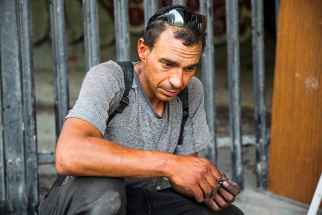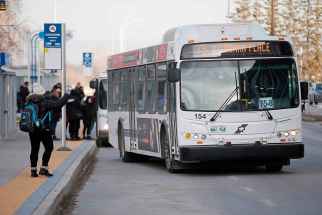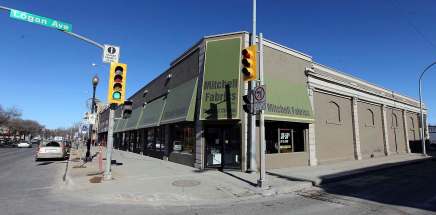Outreach workers lead way into city homeless camps
Read this article for free:
or
Already have an account? Log in here »
To continue reading, please subscribe:
Monthly Digital Subscription
$0 for the first 4 weeks*
- Enjoy unlimited reading on winnipegfreepress.com
- Read the E-Edition, our digital replica newspaper
- Access News Break, our award-winning app
- Play interactive puzzles
*No charge for 4 weeks then price increases to the regular rate of $19.00 plus GST every four weeks. Offer available to new and qualified returning subscribers only. Cancel any time.
Monthly Digital Subscription
$4.75/week*
- Enjoy unlimited reading on winnipegfreepress.com
- Read the E-Edition, our digital replica newspaper
- Access News Break, our award-winning app
- Play interactive puzzles
*Billed as $19 plus GST every four weeks. Cancel any time.
To continue reading, please subscribe:
Add Free Press access to your Brandon Sun subscription for only an additional
$1 for the first 4 weeks*
*Your next subscription payment will increase by $1.00 and you will be charged $16.99 plus GST for four weeks. After four weeks, your payment will increase to $23.99 plus GST every four weeks.
Read unlimited articles for free today:
or
Already have an account? Log in here »
Hey there, time traveller!
This article was published 02/08/2019 (2321 days ago), so information in it may no longer be current.
Jay’s hands are the colour of soot from the bike grease that stains them as he tunes up his can-collecting mobile in a makeshift garage on the riverfront.
The 41-year-old, a former construction worker who has been living on the streets since March, works beside piles of tents and other items belonging to Winnipeggers who have come to call the Osborne Street Bridge home.
It’s a site that has seen increasing activity, both below the bridge and near the parkette at street level, over the last week. The items Jay and others are storing here won’t be touched as long as their owners stay put, following the City of Winnipeg’s move to cancel a request to contract the removal of “bulky waste” from such temporary encampments.
Following the controversial request, axed amid criticism from homelessness advocates in late June, the city has changed its response to temporary shelters.
Just over a week ago, Main Street Project representatives started being dispatched to encampments.
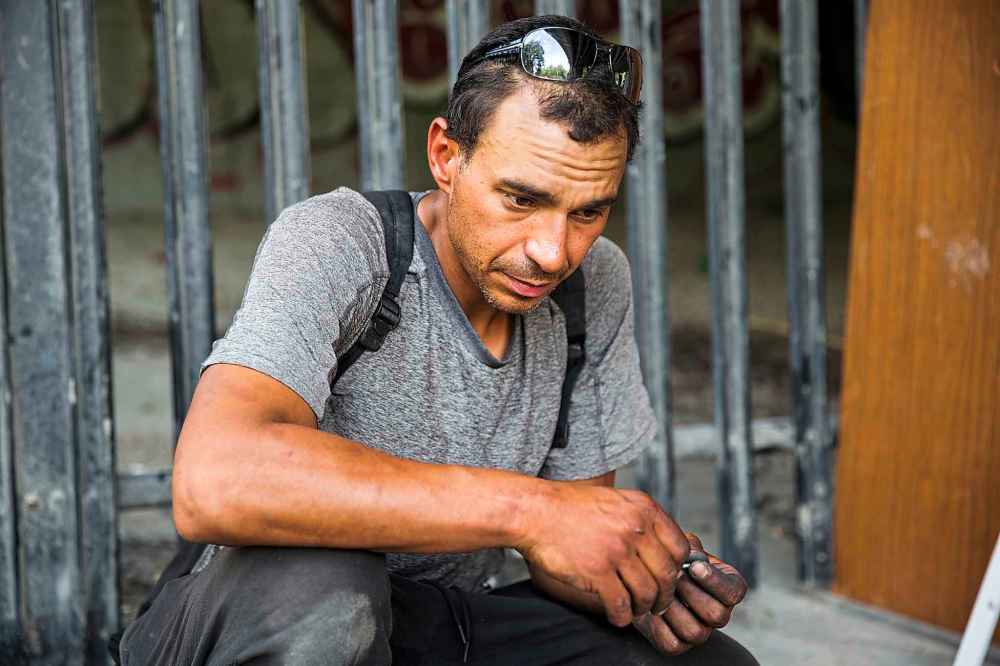
“It’s more humane. Some of this stuff is all people have. If they take it away, what do they have?” Jay said, adding outreach workers have stopped by to give him socks and sandwiches.
Within 24 hours of the city receiving a call about an encampment, Main Street’s van patrol team will investigate the public safety of a site and the safety of the individuals living in it. The outreach team also hands out harm-reduction supplies.
“311 calls, typically, haven’t been responded to, in our view, very well,” said Rick Lees, the agency’s executive director.
Winnipeg Police Service officers were the first to respond to 311 calls about any encampments prior to July 24.
Sgt. Brian Chrupalo said the outreach workers are better equipped to ask camp residents about their well-being and the types of resources they require, such as if they need mental health or addictions supports.
“We’re not going to come in and forcibly remove people. We’re going to offer support,” said Chrupalo, a community service sergeant for Division 11.
He said police will only be contacted if anyone’s safety is put in danger — they have yet to receive any calls since the new protocol came into effect.
“By allowing people that work in the field to have a hand in it, or be a part of it, we think it’ll benefit the city and it enables us to get out and deal with the real issue, which is: why there’s encampments,” Lees said.
“We’re not going to come in and forcibly remove people. We’re going to offer support.” – Winnipeg Police Services Sgt. Brian Chrupalo
Anti-poverty advocates point to a need for increased funding for addiction and health-care supports and affordable housing as factors in combating homelessness.
Jay said he’s been using substances since he was introduced to drugs by family members at age 12. Nearly 30 years later, he said meth has become a “cure-all.”
He’s taking it one day at a time on the street, finding a pillow “wherever I lay my head,” he said. “But I don’t sleep enough.”
The Main Street Project, End Homelessness Winnipeg and the West Central Women’s Resource Centre, among others, have joined forces with the city to create a committee to find a long-term solution to aid those impacted.
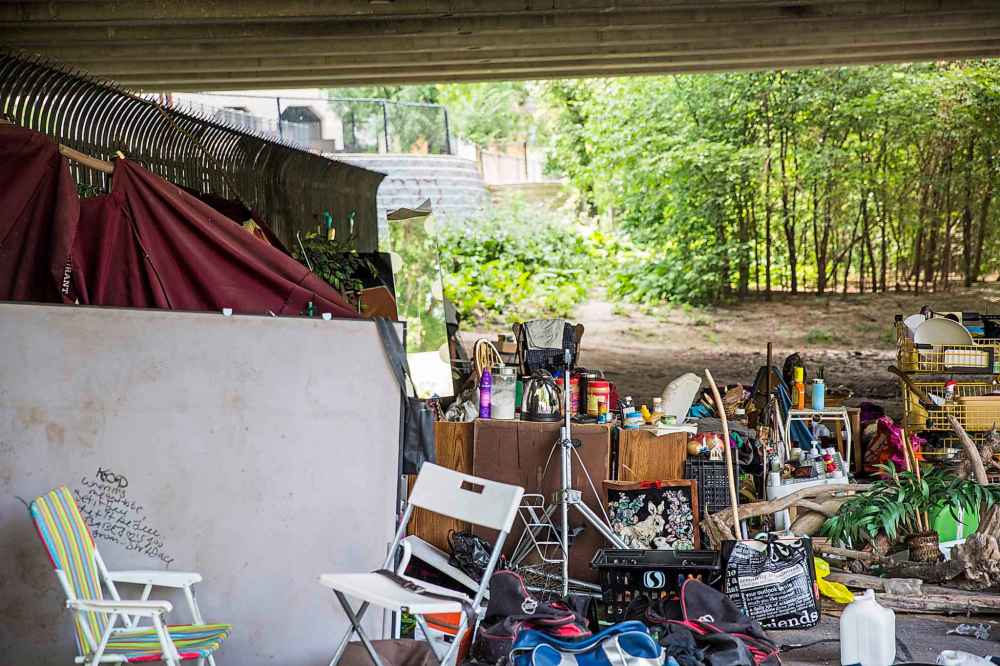
“We all deserve the same opportunities,” said Lisa Spring, director of community engagement at the women’s resource centre. “Access to opportunities is where we have a lot to learn as a city.”
At present, city bylaws continue to prohibit temporary homeless encampments from being constructed on public property.
The most recent Winnipeg Street Census, in which volunteers attempted to survey the city’s homeless population in a single moment in time over the course of two days in April 2018, found 1,519 people were homeless. About 13 per cent of those surveyed reported being unsheltered.
The organizers estimate the total number of people experiencing homelessness in the city is much higher.
maggie.macintosh@freepress.mb.ca
Twitter: @macintoshmaggie

Maggie Macintosh reports on education for the Winnipeg Free Press. Funding for the Free Press education reporter comes from the Government of Canada through the Local Journalism Initiative.
Our newsroom depends on a growing audience of readers to power our journalism. If you are not a paid reader, please consider becoming a subscriber.
Our newsroom depends on its audience of readers to power our journalism. Thank you for your support.





